- Home
- Susan Howatch
Penmarric Page 5
Penmarric Read online
Page 5
“Good afternoon,” he said pleasantly in response to my uneasy greeting. “Welcome to Zillan. We very seldom have visitors from England. Or are you perhaps a Cornishman after all? You have a Cornish look about you… Allow me to introduce myself. My name is Edward Barnwell and I am, as you have no doubt gathered from my clerical appearance, the rector of this parish.”
When I told him who I was he seemed startled and then explained that he knew my father well; they had been at school together long ago, and my father had been attending church at Zillan since he had taken up residence at Deveral Farm. I learned too that my father lunched regularly at the rectory with Mr. Barnwell and his family after matins every Sunday before returning over the moors in the ponytrap to his solitary existence at Morvah.
“If you are to be staying with your father for a few days,” said Mr. Barnwell, “I hope you will accompany him when he lunches with us at the rectory next Sunday. My wife will be delighted to see you and my daughter Miriam will be pleased to see a new face for a change. I fear we are very isolated here at Zillan… Miriam is eighteen now and quite accomplished, although naturally I speak as a prejudiced parent. Well, I mustn’t delay you any longer. Pray give my regards to your father and I hope I shall have the chance to see you again soon.”
“Yes, sir. Thank you,” I said politely, and then before I could stop myself I heard myself add, “Sir, did you say that it was a Mrs. Roslyn who had brought these flowers? Would she be the wife of one of the sons who erected this tombstone?”
He looked at me, his odd eyes betraying nothing, but just as I was cursing myself for asking such a question he said as casually as if we had been discussing the weather, “No, Mrs. Roslyn was the second wife of Mr. John Henry Roslyn, who died in May, and the stepmother of the sons mentioned in the inscription. She still lives at Roslyn Farm, which is situated across the moors toward Chûn. Have you visited Chûn Castle yet? My wife says it’s merely a heap of old stones and hardly worth a visit, but it would be of interest to you, I think, if you share your father’s dedication to history.”
“I must look for the castle on my way back to Morvah,” I said hurriedly and escaped at last, but I could feel his dark eyes watching me all the way down the street, just as my eyes had watched Mrs. Roslyn earlier.
When I arrived once more at Deveral Farm I went immediately to my father’s study and apologized fully for my earlier behavior. “I can only conclude that it was the strain of the interview with Giles Penmar which made me so unlike myself,” I added, and my voice, calm and controlled, betrayed nothing. “I’m afraid I behaved very foolishly.”
“I understand,” he said at once. “We’ll say no more about it.” But he still looked profoundly uncomfortable.
“And of course Nigel should have Gweekellis if I’m to have Penmarric,” I said. “That’s only fair. I can see that now. Please forgive me for what I said earlier.”
“Yes … of course.” But he looked unhappier than ever.
To change the subject before he could begin to question me again about my mother, I said rapidly, “Would it inconvenience you if I stayed here at Deveral Farm for a while? I have a thesis which I want to write about King John … If the atmosphere here is so conducive to writing—”
“Of course!” he said at once, seizing the opportunity to be kind to me. “Stay as long as you wish! A thesis on King John? But what attracts you to such a disagreeable character? Surely of all the Plantagenets … But we can discuss that later at our leisure. I’ll tell Mrs. Mannack to prepare one of the spare rooms for you.”
“I wouldn’t want to interfere with your work—”
“I’m certain you would not—on the contrary, it will be good for me to have some congenial companionship after living like a recluse for the past few months … I prefer to work in the mornings, and two or three afternoons a week I like to take solitary walks along the cliffs, but that still leaves us plenty of time together.”
“The countryside does indeed seem interesting …” I began to talk about my walk to Zillan and my meeting with Mr. Barnwell. So self-possessed was I, so confident that I was in control of myself that it gave me a shock when I found I could not resist saying carelessly to him, “Papa, do you know any of the parishioners of Zillan?”
“Well, by sight, I suppose,” he said doubtfully. “Having attended matins there every week, their faces have become familiar. But there’s no one of my own class there save Barnwell himself. The only substantial landowner in Zillan parish, an old bachelor named Meredith, is too crippled with arthritis to leave his home to attend matins, so I’ve yet to meet him.”
“I see.” I could not stop myself. I had to go on. “I was wondering if you knew anything about a Mrs. Roslyn, a very beautiful woman of perhaps thirty or less.” And as he looked at me in astonishment I said glibly, “I saw her this afternoon and the rector spoke of her. I wondered if you knew her too.”
“I might know her by sight.” He smiled a little. “Surely a woman of ‘perhaps thirty or less’ would seem somewhat old to a boy of your age?”
“I was merely struck by her good looks,” I mumbled and tried to think of some plausible way to excuse myself from his presence, but he spoke before any attempt at escape was possible.
“There’s no need to look embarrassed,” he said gently, touched by what he supposed to be my naïve admiration. “I realize that you have reached an age when the opposite sex seems attractive to you. Perhaps while we’re mentioning the subject I should say …”
The long-awaited discourse on matters pertinent to a gentleman’s private life. I wished I were three hundred miles away in London.
“… how pleased I was,” he was saying, “that you conducted yourself so well at Oxford. Of course I was confident that you would always behave honorably, but you were young and had a great deal of unaccustomed freedom, and I know that it’s often far from easy for a young man to maintain high standards in such circumstances …”
I thought of the women I had known at Oxford, the lower-class women who were willing to oblige a young gentleman in search of discreet amusement, the women who had belonged to a part of my life so private that even my closest friends had failed to suspect its existence. Shame washed through me in a hot tide; I could feel my cheeks burning with my guilt.
“… but I knew my trust in you would be justified,” said my father and turned aside tactfully to ignore what might have been my innocent blushes. “Now let me speak to Mrs. Mannack about preparing a room for you.”
I slept badly that night. I kept waking up and vowing I would turn over a new leaf without delay, but when morning came at last I could think only of Janna Roslyn, and after breakfasting early I left the house and began my walk across the moors to Roslyn Farm.
2
Chûn Castle was no doubt of considerable archaeological interest, but I had other matters on my mind besides archaeology that morning, so I did not linger by the double ring of old walls that stood atop the ridge but merely admired the splendor of the views to the sea beyond Penzance in the south and the sea beyond the cliffs of Morvah to the north, before I descended into the valley of Zillan parish. I saw the farms soon afterward; there were two below the ridge where Chûn Castle stood, one a substantial farmhouse with a variety of outbuildings and the other a mere cottage with a small barn. I decided that Mr. John Henry Roslyn, deceased, would have resided at the farmhouse and leased the cottage to tenants—if indeed he had even owned the land in the first place. The Penmars owned much land in Zillan parish and it was possible that Roslyn had been a tenant instead of a yeoman farmer with his own land.
I drew nearer the farmhouse. It was old, older than my father’s ugly house at Morvah, and although built of the usual somber Cornish stone, it had a mellow air which reminded me of my home at Gweek. Around the porch grew the wild roses, entwined with clusters of honeysuckle. There was a little garden in front of the house and someone, presumably the mistress, had tended it carefully and used the soil to grow herbs. I smel
led thyme and lavender, and for a moment I stood by the front gate and savored the mingling scents and the peace of the old stone house. Presently when I moved into the farmyard the smell of manure contrasted sharply with the scents of the herb garden, and I wrinkled my nose with distaste as I picked my way through the mud and the hens to the back door.
The door was ajar. I was just wondering why the place was so quiet and deserted when the voice rang out to meet me, a harsh voice that jabbed furiously through the still morning air.
“You lying tinker’s bitch,” said a man in the ugly accents of an uneducated Cornishman. “It was an ill day for us when Father brought you home from St. Ives.”
I stopped dead. And then as my heart missed a beat I heard the woman say coolly, “It was an ill day for your father when he begot you.” Her voice bore a note of disdain. It was a low, self-possessed voice and she spoke with a soft Cornish lilt. “Fine sons you were to him! You’ve only yourself to blame that you didn’t inherit this farm when he died.”
“It was you who was to blame!” shouted a second man. “If it hadn’t been for you—”
“Hold your tongue, Joss,” said the first man grimly. “Now listen to me, Janna. I don’t know how you get the money to keep this place in order and to be blunt I don’t care. But I’ll make you one last offer for this land and this house—a good offer in good coin—and you can take it or leave it. But think twice before you turn it down. I want this place and I intend to have it. If you won’t give it to me in a proper legal way I swear I’ll drive you out by every means I know of and you’ll be sorry the day ever dawned when you crossed Jared Roslyn.”
I had already moved swiftly and noiselessly across the yard, and now as soon as the man finished speaking I pushed the back door wide and said clearly from the threshold, “You’d best be careful, Mr. Roslyn. Extortion is a criminal offense. I’m sure you’d be averse to being brought before the bench and spending the next few years in prison.”
And as the silence fell upon the room like a pall I crossed the threshold and walked into the large farm kitchen beyond.
She had her back to the window so that the light was behind her and I could not see her expression. She was very still. By the range stood a small but well-knit youth of about my own age whom I guessed to be Joss, the younger brother, and close to me by the door stood a dark, powerfully built farmer of thirty with hard eyes and a narrow mouth.
I looked at him, I boy of twenty face to face with a man ten years my senior, and as I looked at him I measured him as one might measure an opponent in the ring. And when I had measured him I raised the massive barrier of my class, which was the only weapon I had, and prepared to use it to annihilate him.
“I don’t know you, sir,” I said with the studied insolence I had acquired from the titled young aristocrats of Eton. “Nor do I wish to. I’m not accustomed to meeting louts who abuse a widow still in mourning and trespass on her property in order to threaten her and cause her distress. Giles Penmar, who I am sure is known to you, is my cousin and Harry Penmar is a personal friend of mine. Unless you want to find yourself in trouble of the most serious kind I would advise you to remove yourself and your brother immediately from this property, where I believe you have no right to be in the first place, and if I hear that Mrs. Roslyn has been bothered again by either of you, then—to quote your own singularly pertinent phrase—you’ll be ‘sorry the day ever dawned’ when you failed to observe my advice.”
The man turned a dull deep red. I stood my ground, but finally all he said when he could control his voice was “You’re lucky with your friends, Janna.”
“The woman’s face was still in shadow. She said nothing, and after a moment Roslyn motioned his brother and with the boy at his heels walked past me into the farmyard.
I stepped into the kitchen, closed the door and found her before me. For a second we stood inches apart facing each other. It was the first time I had seen her without her veil, and I had not realized before how fair she was. I had seen the blue black-lashed eyes and the white skin, but not the color of her hair. It was golden, a deep pure shade of gold, rich and exciting. I knew instinctively that the hair would be long and thick when it was loosened, smooth and heavy to the touch.
“Thank you, sir,” she said coolly, shunning any hint of effusive gratitude. “It was kind of you to save me from such an embarrassing scene. May I have the honor of knowing whom I am addressing?”
I had noticed the improvement in her speech since she had begun to talk to me and I found her correctness of manner surprising. The Cornish lilt was still much in evidence, but she had an odd veneer of education and quality which was unexpected in a woman of her position. I tried to place her in some convenient category of class against an appropriate background, but could not.
“My name is Castallack,” I said slowly. “Mark Castallack. I come from Gweek, near Helston.”
There was a slight pause before she said, “Castallack? There’s a village of that name between Mousehole and Lamorna… Well, how do you do, Mr. Castallack. May I offer you a glass of elderberry wine?”
“That would be delightful, Mrs. Roslyn. Thank you. I was on my way to Zillan from my father’s house at Morvah, and somehow I managed to lose my way, so I decided to stop at your farm to ask directions…” The lies slipped smoothly from my tongue as I followed her out of the kitchen down a passage to the front of the house. She was tall for a woman, but slender, very graceful. As I followed her down the passage to the stairs and hall I noticed how her plain drab dress clung to her waist and lingered in clinging folds about her hips. At the front of the house she opened a door and led the way into a neat parlor, scrupulously clean and well dusted. There were even flowers on the mantel-shelf above the fireplace, a fact that surprised me, for I had thought the working classes seldom used the “front room” of their homes. By the window which faced the herb garden and the moors stood a small oak table, and Mrs. Roslyn asked me to be seated while she fetched the wine.
When she returned she sat down opposite me. Her drab black dress was buttoned up to her throat, and my glance traveled instinctively from her waist to her neck and back to her waist again before I remembered my manners and stared out of the window to regain my composure.
“Will you be long in this part of Cornwall, Mr. Castallack?” she asked effortlessly while I struggled with an unexpected wave of self-consciousness. I was suddenly much too aware of my youth, my lack of inches, my plain features and my thickset frame.
“For a few weeks, perhaps.” I made a great effort, determined to overcome my reserve. She was, after all, only a working-class woman, despite her airs and graces. There was no need for me to feel so paralytically shy. I took a sip of the home-made wine and began to explain that I had just finished my studies at Oxford and had decided to visit my father, who was spending the summer at Deveral Farm. The wine, powerful as only home-made wine can be, soon enabled me to summon the boldness to question her about herself: Had she always lived in Cornwall? Were her stepsons in the habit of persecuting her in such a distasteful fashion? Had it been hard for her since her husband died? I learned that, yes, she had always lived in Cornwall and in fact had never been east of the Tamar, and that, yes, her stepsons entertained nothing but ill-will toward her since her husband had left the house to her in his will, but she was not afraid of her stepsons since there was nothing they could do to evict her from her home. She managed well enough; she had had to work harder since her husband’s death, but she had help; the young servant girl Annie was half-witted but very biddable, and there was always Griselda.
“Griselda?” I said.
“Griselda came with me from St. Ives when I married,” said Mrs. Roslyn, and some small edge to her voice told me that she did not wish to pursue the subject.
“I hear St. Ives is a very picturesque town,” I said after a slight pause. “I’ve long wanted to visit it some day.”
She smiled but said nothing, and I realized then that the distasteful subject
was not the unknown Griselda at all but the town where she had lived until her marriage.
“I have friends there,” I said rapidly. “The St. Enedocs—or at least Russell St. Enedoc was a friend of mine at school although I haven’t seen him for a year or two now …” And I went on talking of matters of no particular importance, the parts of Cornwall I knew best, the local gentry with whom I happened to be acquainted, my impressions of Morvah and Zillan, until at last her polite silence hinted that she was waiting for me to leave.
I rose to my feet so clumsily that I almost upset my empty wineglass. “If you’ll excuse me, Mrs. Roslyn, I think I should be on my way.”
“Ah yes,” she said, “you told me you were on your way to Zillan when you became lost and decided to stop at the farm to seek directions.” Her clear eyes looked straight into mine and I thought I saw a flicker of irony in her expression as she repeated the lie I had told her. “Take the lane down to the road, then cross the road and you will see Zillan before you across the moors.”
“Thank you.” We were in the hall by this time and she was opening the front door. As she turned to face me again I held out my hand and after a slight hesitation she put her hand in mine. Her fingers were long and sinuous. I could imagine how they might feel under different circumstances, and because my imagination was unusually vivid I held her hand too long and she was obliged to withdraw it to preserve the proprieties.
I said clumsily, “May I call again?”
“Please do,” she said, “if you happen to be in this neighborhood.” But her voice was merely civil. It was not an encouraging invitation. “The mornings are the best time,” she added, just as I was beginning to feel unpleasantly rebuffed, “because in the afternoons I try to rest or at least to do some sewing or ironing before I cook the evening meal. But don’t call on Thursday. Thursday is the big market day in Penzance and I spend all day there selling the farm produce.”

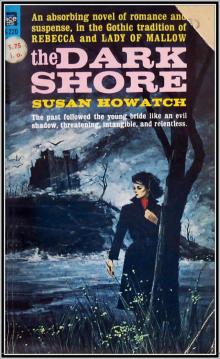 The Dark Shore
The Dark Shore Sins of the Fathers
Sins of the Fathers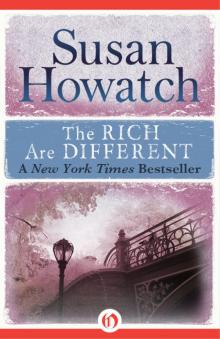 The Rich Are Different
The Rich Are Different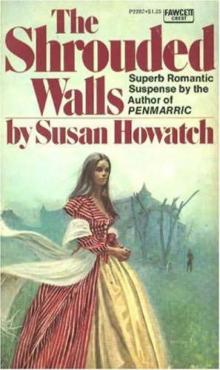 The Shrouded Walls
The Shrouded Walls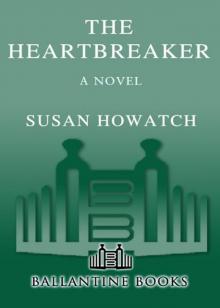 The Heartbreaker
The Heartbreaker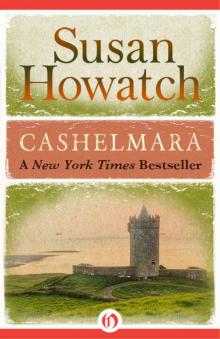 Cashelmara
Cashelmara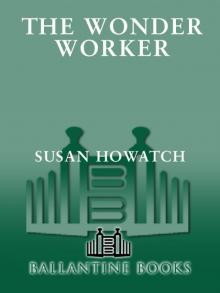 The Wonder Worker
The Wonder Worker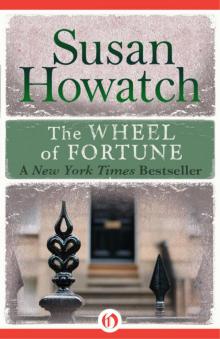 The Wheel of Fortune
The Wheel of Fortune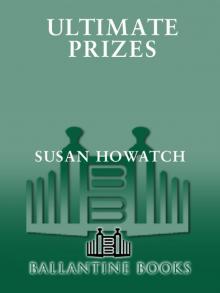 Ultimate Prizes
Ultimate Prizes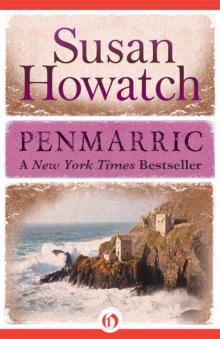 Penmarric
Penmarric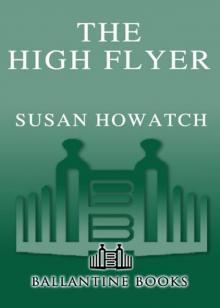 The High Flyer
The High Flyer